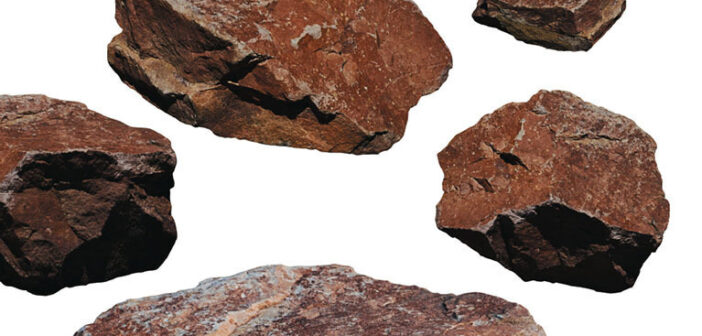Finding new revenue and cost savings in unexpected places
According to numerous reports, and behavior, consumers often make reservation choices based on a hotel’s environmental report card. Put another way, leisure travelers want brands to align with their values, and sustainability is a priority.
Booking.com says 61% of U.S. travelers want to travel more sustainably, up 15% from 2021. And 78% of Americans would pay more to lower the carbon footprint of their vacation. According to The Vacationer, 12% would spend $250 more, and 6% would pay $500 more on eco-friendly options in accommodations and travel.
Business travelers also are making low-carbon and sustainable hospitality choices. For them, this often comes as a result of corporate goals to reduce carbon emissions in their supply chains.
Hotels are showing up by adopting sustainable business operations, including using fewer resources, minimizing waste, and deploying smarter supply chains. Here’s a look at five proven methods that offer real ROI.
 FOOD MOVES
FOOD MOVES
Food is the largest landfill component, estimated to be almost half of the total waste produced in tourism and hospitality. A food-recovery program with a local collective can safely redistribute fresh food. Perishables, fruit, and vegetable scraps can be repurposed to generate clean energy or used in compost and animal feed for local farmers. These actions also add back value as a tax deduction.
 WATER AND ENERGY ACTIONS
WATER AND ENERGY ACTIONS
Energy consumption represents about 60% of a hotel’s carbon emissions. Increasing building efficiency, while initially expensive, is central to sustainability strategy. An international hotel group found that decarbonizing its hotels by upgrading to smart energy-management systems like occupancy sensors, and converting to energy-efficient electric equipment and appliances could yield internal returns of about 38% after five years.
Education on the impact of reusing towels and not changing bedlinens daily during a multi-night stay raises awareness of water consumption and the energy needed for pumping and heating water in the hotel laundry. Making that request of guests can reduce laundry loads by 17%.
Installing low-flow aerators in plumbing fixtures won’t change water pressure and use 25-50% less water per shower. These changes are relatively easy, have high ROI, and are supported by guests and employees.
Renewable energy isn’t an option for everyone, but rooftop photovoltaic panels can significantly reduce a hotel’s energy load. Also, consider installing electric chargers for guests with EVs and adding a fleet of e-bikes for guests.
 WASTE STREAMING
WASTE STREAMING
Zero-waste programs are emerging throughout hospitality, and begin with preventing and minimizing waste. Trends include eliminating disposables throughout the hotel, using refillable dispensers for toiletries, and offering water-bottle-refill stations.
Separate trash from recyclables with marked bins throughout the hotel, in guest rooms and, ultimately, at the loading dock. Broaden your ideas on reusing useful materials to increase the waste-diversion rate. If materials can’t be reused or repurposed in your facility or on your grounds, look to nonprofit organizations. Partial soaps and other room amenities can go to organizations like Clean the World. Schools can use office supplies and equipment; community and veterans’ groups accept furniture and vehicles.
Compactors, composters, and balers help optimize space for waste. Partner with haulers for direction on proper recycling and safety protocols and hazardous materials removal. A waste broker can offer options for selling recyclables.
 BACK-OFFICE APPS
BACK-OFFICE APPS
Cloud technologies can lower energy usage, can eliminate manual paper processes (25% of hotel waste is paper), help hotels become more operationally efficient, and even improve customer service. For example, automating your lost and found by leveraging AI, SMS, and smartphones frees critical staff time. Quickly reuniting a guest with a lost item delivers a positive guest experience and can gain loyalty while lowering lost-andfound inventory and, subsequently, waste.
Advanced apps flag unclaimed electronics and provide prepaid packaging to send devices to a green recycling partner. They’ll securely erase all data and personally identifiable information and sell the items. A large hotel can find a dozen or more phones, tablets, or laptops left behind each month. This is a seamless way to dispose of and create a revenue stream from electronics that will be refurbished or used for components and kept out of landfills. Found jewelry and accessories are similarly liquidated.
 GET GOING ON GREENING
GET GOING ON GREENING
The Cornell Hotel Sustainability Benchmarking Index has data on energy, water, and carbon emissions from 21,000 hotels. Compare your hotel to others in your segment or location. Waste-management companies offer online calculators to track waste-stream diversion efforts, recycling rates, cost savings, and revenue generation. Airlines offer carbon calculators to measure the impact of your own travel.
It’s important to track your sustainability efforts and report out to employees, shareholders, guests, and the community. Share your environmental, social, and governmental (ESG) criteria, initiatives underway, progress toward goals, outcomes and impact.
Simply put, hoteliers can help their companies become more sustainable and competitive by realizing the potential of their organization and its people.





